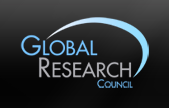In 2010, EMBO Reports published an article entitled “For I dipped into the future”, in which Andrea Rinaldi looks at the speed with which the Internet and other technological advances are in the process of shaping – and, indeed, will shape – the way in which scientific results are communicated. The title of the article makes reference to the very beautiful and somewhat prophetic poem written by Alfred, Lord Tennyson in 1848 : “For I dipped into the future, far as the human eye could see, Saw the Vision of the world, and all the wonders that would be…”. I will make use of this same sentiment in forecasting a leadership role for Brazil in the not too distant future, in the area of partnerships in academic projects, as far as ethics and research integrity are concerned. I see the integrity of research in Brazil acting as a beacon of policies and studies on this issue in Latin America which is capable of attracting to the knowledge output landscape for the region countries which, for the most part, have no seat at the international table around which discussions about this issue take place.
 A few years ago, we could not have imagined that Brazil would now be so close to taking a seat at this table. Last year (2012), the journal Nature announced that the first international forum of the recently created Global Research Council (GRC) would be jointly organized by Brazil and Germany. The GRC, made up of around 50 countries is a huge international organization, which at the time of its creation, brought together in the USA the most important national councils or agencies of the five continents. This forum took place a few months ago in Berlin, with the German Research Agency (DFG) and The National Council for Scientific and Technological Development (CNPq – Brazil) acting as “co-hosts”. But what was the focus of this meeting of the GRC? “Research Integrity” and “Open Access”. In tackling such issues, the meeting clearly showed how relevant scientific integrity is in the context of research funding, scientific output and the evaluation of such output.
A few years ago, we could not have imagined that Brazil would now be so close to taking a seat at this table. Last year (2012), the journal Nature announced that the first international forum of the recently created Global Research Council (GRC) would be jointly organized by Brazil and Germany. The GRC, made up of around 50 countries is a huge international organization, which at the time of its creation, brought together in the USA the most important national councils or agencies of the five continents. This forum took place a few months ago in Berlin, with the German Research Agency (DFG) and The National Council for Scientific and Technological Development (CNPq – Brazil) acting as “co-hosts”. But what was the focus of this meeting of the GRC? “Research Integrity” and “Open Access”. In tackling such issues, the meeting clearly showed how relevant scientific integrity is in the context of research funding, scientific output and the evaluation of such output.
The GRC, together with the World Conference on Research Integrity, now in its third year, could possibly be the major indicators that it is not a premature exercise to view this leadership role of Brazil in the area of research integrity. As a result of this meeting of the GRC, which brought together the countries responsible for around 80% of the potential world research output, principles were drawn up relating to the integrity of, and Open Access to research data. We know that these issues have become a simmering hotbed of multiple political, social and cultural perspectives. Nevertheless, there appears to have been agreement between the 70 or so representatives, that as far as the evaluation of research projects is concerned, the agencies in each respective country should encourage mechanisms which foster more transparency, impartiality and a better management of the conflicts of interest which arise during the review process of the projects.
This GRC event took place some weeks after the 3rd World Conference on Research Integrity (2013) at which the issue of integrity was discussed within the context of collaborative research networks between different countries. Other issues discussed within this context were academic publications, including the peer-review process and the correction of scientific literature. Research Integrity was also tackled from the perspective of self-regulation of science which pointed out some present-day challenges for the research community, irrespective of the academic discipline concerned. It was at this event that there was public recognition of the fact that Brazil has the genuine to host the 4th World Conference on Research Integrity : this will take place in Rio de Janeiro in 2015! We know that right up to 2015 there will be many opportunities to close the gap between scientific ethics and integrity and all the steps involved in the research process, from the initial proposal right up to the communication of the results, to both academic peers and the general public.
We have seen how much the narrowing of this gap is being encouraged, particularly as far as the training of young researchers is concerned. In Brazil, I think that in this regard we are still at a very early stage and I think that this seat at the table the country is gaining in world forums leads us to a timely question: what is the role of educational and research institutions locally? Do we have to wait for a demand from development and funding agencies stating that the granting of research funds is to be dependent on an institutional commitment to take actions at an educational level concerning integrity? For example, it is already like this in the United States for grants given by the National Science Foundation (NSF) and the National Institutes of Health (NIH). In Ireland, in a document that has been publicized in the country’s educational and research institutions, the Irish Research Council, in cooperation with other institutions, states that “the funding agencies…can embed research integrity requirements in their funding schemes (e.g. as already done by the Health Research Board)”. It is clear that what is hoped for as far as these councils are concerned is that the institutions should not adopt a check-list approach as warned by the Irish document.
This institutional commitment to the training of researchers should make a difference in the way they propose, carry out, communicate and review their research activities. Everything indicates that this method of management of resources, in harmony with policies for academic integrity in the research groups in the State of São Paulo will, for example, be encouraged by FAPESP, the São Paulo Research Foundation (Fundação de Amparo à Pesquisa do Estado de São Paulo (FAPESP)) which is still the only research funding and development agency that has demonstrated a marked involvement in actions in research integrity in Brazil. So, I rephrase the question here: Are we going to wait for a demand from the funding and development agencies? “Dipping into the future”, I would say that this demand is much closer for our universities than it appears. A possible, but undesirable scenario perhaps in the not to distant future is the following: Brazilian institutions in an on-going exercise of complying with a “check list”. However, I think we can “make happen” a far more exciting scenario: Brazilian institutions promoting concrete and vibrant actions so that the topic of academic integrity becomes part of the culture of the training of undergraduate and graduate students.
Faced with numerous priorities in the political agenda of research systems in so many areas and with enormous challenges for science, technology and innovation in the global context, the dialog deepens between ethics and integrity in research and the contexts associated with these priorities and challenges – in my view for noble reasons. In the scope of global research funding, the most recent actions – some already reported here – seem to flag a need for reinterpretation of the term “research quality”. In the case of educational and research institutions in many of these countries, the need for this reinterpretation has also been flagged. In Brazilian universities, I believe it reasonable to assume that the time has come.
Acknowledgements
I thank Profs. Martha Sorenson (IBqM/UFRJ), Edson Watanabe (COPPE/UFRJ) e Rosemary Shinkai (PUCRS) for their very valuable comments.
References
Global Research Council (GRC). Disponível em http://www.globalresearchcouncil.org/meetings/2013-meeting Acesso em 13/09/2013.
Consultation on Policy Statement on Ensuring Research Integrity in Ireland. Irish Universities Association. [Viewed 16 September 2013]. Available from http://www.iua.ie/research-innovation/research-integrity/.
NOORDEN, RV. Global council aims to coordinate science. Nature, 2012, vol. 485, pp. 427.
NSF & NIH Requirements. Carnegie Mellon Home. [Viewed 16 September 2013]. Available from http://www.cmu.edu/research-compliance/responsible-conduct/nsf-nih-requirements.html.
RATCLIFFE, S. ed. Oxford Essential Quotations. Oxford: Oxford University Press, 2012. [Viewed 16 September 2013]. Available from http://www.oxfordreference.com/view/10.1093/acref/9780191735240.001.0001/q-oro-00010677
RINALDI A. For I dipped into the future. EMBO Rep., 2010, vol. 11, pp. 345–9.
3th World Conference on Research Integrity. [Viewed 12 September 2013]. Available from http://www.wcri2013.org/overview_e.shtml.
 About Sonia Vasconcelos
About Sonia Vasconcelos
Professor in the Program for Education, Management and Dissemination in the Biosciences (PEGeD), Institute of Medical Biochemistry (IBqM), Federal University of Rio de Janeiro (Universidade Federal do Rio de Janeiro -UFRJ). Member of the Committee of Ethics and Research, Clementino Fraga Filho University Hospital (Comitê de Ética e Pesquisa Clementino Fraga Filho – Hospital Universitário – CEP-HUCFF – UFRJ). Link Lattes: http://buscatextual.cnpq.br/buscatextual/visualizacv.do?metodo=apresentar&id=K4776286J6
Translated from the original in Portuguese by Nicholas Cop Consulting.
Como citar este post [ISO 690/2010]:

















Recent Comments